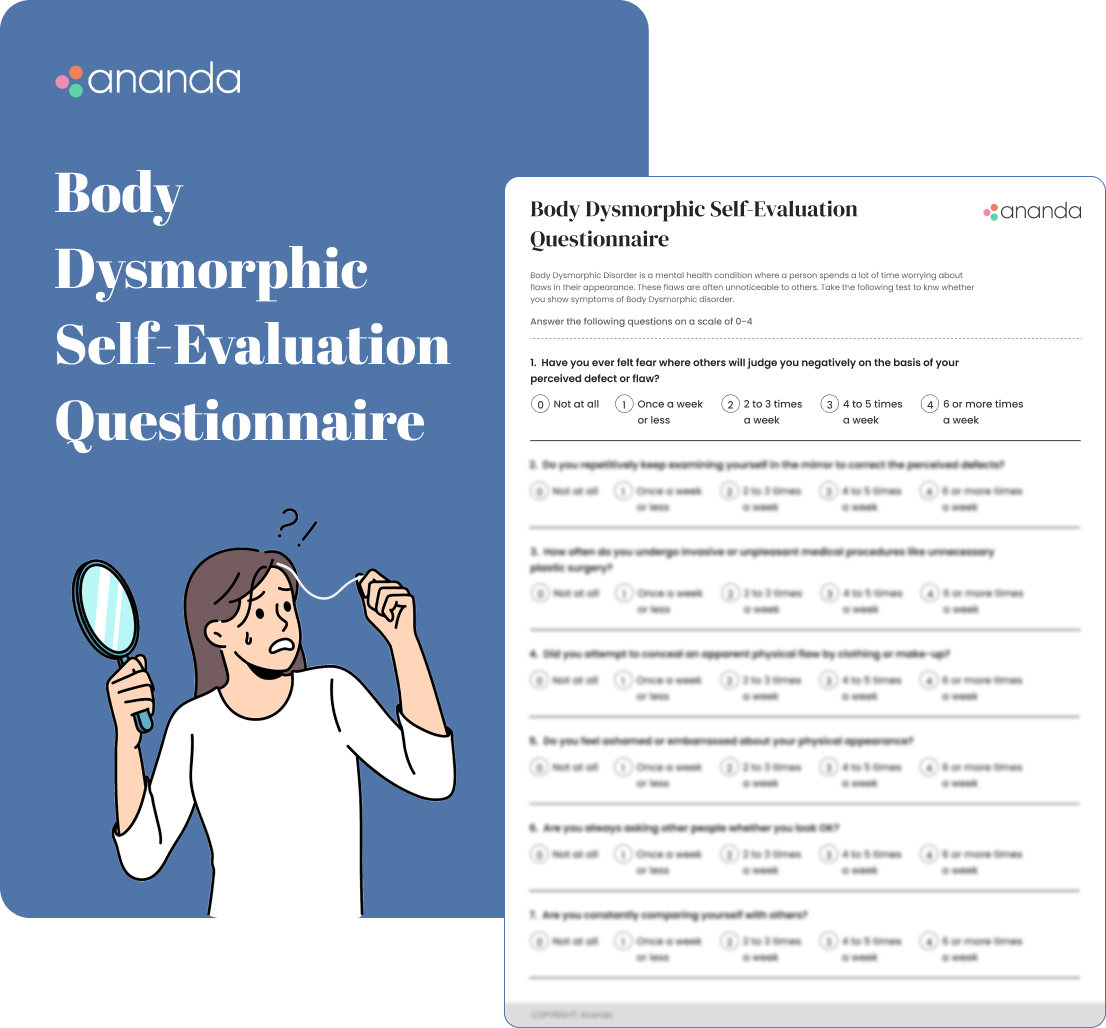Body Dysmorphic Self-Evaluation Questionnaire
The Self-evaluation method is used to rate oneself on the basis of the score obtained on the test and to analyze the situation critically and act on it. This method will help individuals to honestly evaluate their strengths, and weaknesses and get to know themselves better.

Download "Body Dysmorphic Self-Evaluation"
The Body Dysmorphic Self-Evaluation is a short 10-item assessment wanting to measure your body dysmorphia levels and trying to understand your mental health condition to the best.
BDD is a mental health condition in which a person becomes particularly aware of perceived flaws and defects. People with BDD are constantly dissatisfied with their appearance and may need constant validation.
Severity of BDD – Mild, Moderate, High
It will help you better understand your mental health condition.
The evaluation will help you gain insight into your emotions and work on them.
Frequently Asked Questions
The Body Dysmorphic Self-Evaluation is a test that will make you aware of your body dysmorphic levels and its severity. This assessment will give you a better understanding of the symptoms of body dysmorphia if you have any. It will also give you insights into any issues that you are facing at the moment and to seek help for them.
The biggest advantage of this self-evaluation is that it gives you an overview of your mental well-being in general and whether you need to reach out to a mental health professional to seek help and guidance. Along with this, it will give you an insight into the physical as well as emotional signs and symptoms.
Once you have taken the evaluation and answered all the questions, you will be required to score yourself for each answer and get a total score as well as per the instructions given below the test. Your total score will determine the severity of BDD that you may be facing. You can then proceed to book a session with Ananda if you feel so!
Body Dysmorphia can be diagnosed on the basis of the following-
- You must be abnormally concerned about a small or nonexistent body flaw.
- Your thoughts about your body flaws must be severe enough that they interfere with your ability to live normally.
- Other mental health disorders must be ruled out as a cause of your symptoms.
It is possible for any individual to get tested for BDD as soon as they feel the need to do so depending upon their signs and symptoms. A diagnosis of BDD can only be made by trained mental health professionals such as a psychiatrist or a psychologist.
Some of the warning signs and symptoms of BDD include avoiding mirrors or constantly checking yourself in the mirror, trying to hide your body parts under a hat, scarf, or makeup, constantly exercising or grooming, always asking other people whether you look fine, etc.
BDD is not an extremely serious mental illness but it is more prominent in women than in men. If left untreated, it may get worse over time, leading to anxiety, extensive medical bills, severe depression, and even suicidal thoughts and behavior.
BDD usually tends to get worse with age if not diagnosed and managed early. This happens when people start to opt for excessive plastic surgeries to cover up their body flaws or suddenly increase the use of make-up to hide their particular body parts.
